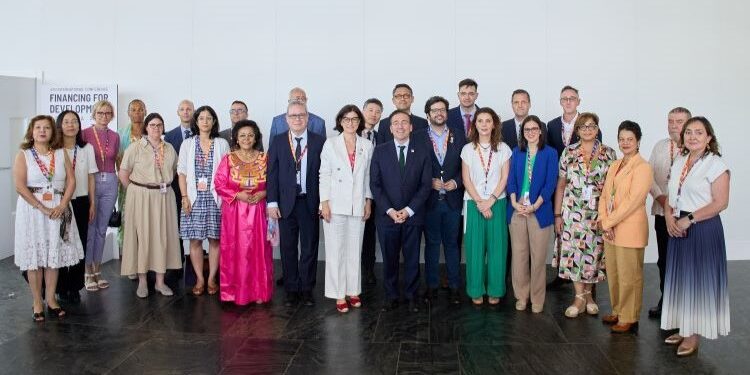The Diplomat
The Minister of Foreign Affairs, José Manuel Albares, chaired a meeting this Tuesday between the Spanish Agency for International Development Cooperation (AECID) and its counterparts in other countries. Among other issues, they discussed the role of cooperation in the context of reduced Official Development Assistance (ODA) budgets in some donor countries.
The event, entitled “Development Agencies: Translating the Ambition of the Financing for Development Summit into Action on the Ground,” took place within the framework of the Fourth International Conference on Financing for Development (FFD4) in Seville and brought together AECID and other development agencies, such as the Brazilian Agency for Cooperation (ABC), the Norwegian Agency for Development Cooperation (NORAD), and the African Union Development Agency (AUDA-NEPAD).
Also participating were key national and international actors in the field of cooperation, such as directors and senior officials of bilateral cooperation agencies from all regions of the world.
On behalf of Spain, speakers included Albares, who opened the event; AECID Director Antón Leis, who reaffirmed Spain’s “active role” in strengthening the international cooperation system; and Secretary of State for International Cooperation Eva Granados, according to a press release from the Ministry of Foreign Affairs.
The event explored the role of these agencies as conduits of international solidarity and as a tool for accelerating the implementation of the Sustainable Development Goals (SDGs) and translating the Conference’s commitments into concrete and effective actions on the ground.
The event also addressed the current challenges and opportunities for development agencies in a global context marked by uncertainty, the reduction of Official Development Assistance (ODA) budgets in some donor countries, and a growing demand for effective and adaptable solutions.
The event also discussed priorities for implementing the Seville Outcome Document, including increased collaboration with other actors (development banks, civil society, and the private sector) and the need to mobilize new concessional resources. A new narrative for international cooperation was designed, centered on the right to development, global solidarity, and knowledge sharing, with the aim of revitalizing the founding principles of development cooperation.







